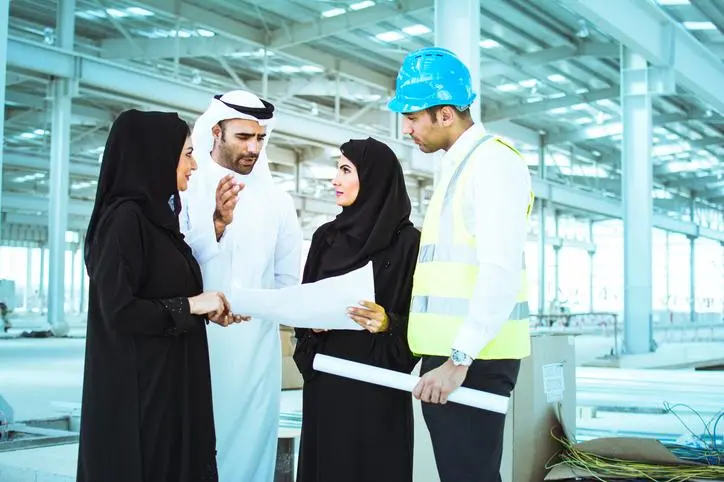PHOTO
About 40 per cent of the engineers working on the UAE's ambitious plan to land a rover on the Moon by 2024 are women. The 'Rashid Rover' - named after the late Sheikh Rashid bin Saeed Al Maktoum, builder of modern Dubai, - will ultimately become part of a global exploration programme, the Emirates Lunar Mission team said on Sunday.
If successful, the UAE will become the first Arab country and the fourth in the world to land on the lunar surface after the United States, Soviet Union, and China.
Adnan AlRais, Mars 2117 Programme Director, Mohammed Bin Rashid Space Centre (MBRSC), said: "The Rashid Rover will be developed fully in house by our young Emirati engineers. This will be our first space robotic mission. So a lot of robotic space technologies will be developed as part of this mission."
Multiple teams are working towards completing the design of the rover by 2021. It is set to be manufactured in 2022, while preliminary experiments and tests of the prototype are expected to start in 2023.
"Developing all these missions and new technologies will help us ... achieve our ultimate goal, which is basically sending humans to Mars and building a settlement on Mars by 2117. So, UAE is contributing to this global exploration road map," AlRais added.
Objectives of the mission
With this mission, the UAE will develop on the experiences acquired in the past 14 years.
AlRais said: "First, research and development (R&D) will support in building an environment encouraging R&D in the country. Second, this will encourage local talent in the area of advanced space robotics. For the first time, we are developing space robotic missions. Third, this mission will also be a platform for international collaborations. Fourth, the UAE will be contributing significantly in the global exploration world map through the development of this mission. This, in turn, will help other space agencies in the development of their missions."
Scientists said the Emirates Lunar Mission will also be an opportunity to study new lunar locations that have not been studied by previous missions.
Dr Hamad Al Marzooqi, project manager, Emirates Lunar Mission, said: "There were a handful of missions that were sent to the lunar surface before, but this mission will explore a new territory where we will be able to provide valuable scientific data to the international science community to study the Moon. It will be an opportunity to study the lunar regolith - which is a fine dust on the lunar surface. Our mission will provide valuable data with the instruments that we have in order to study lunar dust and that will help us develop technologies for future missions."
The Rashid Rover is expected to send back at least 1,000 images, including that of the Moon landing, surface, night-time images of the Earth and thermal ones. It will also relay navigation data, including flight time, surface topography data on the Moon, inertial measurement unit, temperatures and energy consumption.
Concept design
The rover will have four cameras. Two cameras will be used for providing high resolution images of the lunar surface and for navigation.
"Then we have two scientific cameras. One will be a microscope camera that will give us images of the lunar dust. A thermal camera will be essential to study the thermal characteristics of the different materials on the lunar surface. This will also help to understand the different temperature variations."
An instrument called Magnaprobe is the first of its kind that will study the physical phenomenon on the lunar surface. "Besides, the rover has four wheels and is designed to traverse the surface and to overcome obstacles of different shapes and elevation."
Potential challenges
The lunar surface is harsher than Mars and temperatures can reach minus 170 degrees Celsius. Other areas of concern pertain to lunar soil, surface terrain and photoelectrons.
"It's very challenging to land a mission to the Lunar surface. A lot of missions have failed before and we have noticed that over 55 per cent of missions have failed. It's a challenging task but we are set to overcome it. We may also be faced with some technical difficulties that we will need to overcome. But we have the capability and experience to advance in order to have a successful mission," said Al Marzooqi.
Khaleej Times: Copyright © 2017 Khaleej Times. All Rights Reserved. Provided by SyndiGate Media Inc. ( www.Syndigate.info).
Disclaimer: The content of this article is syndicated or provided to this website from an external third party provider. We are not responsible for, and do not control, such external websites, entities, applications or media publishers. The body of the text is provided on an “as is” and “as available” basis and has not been edited in any way. Neither we nor our affiliates guarantee the accuracy of or endorse the views or opinions expressed in this article. Read our full disclaimer policy here.





















